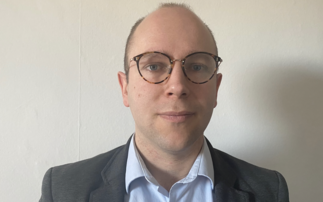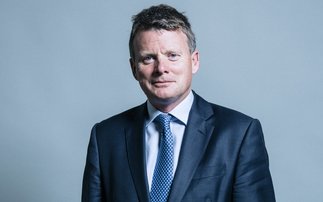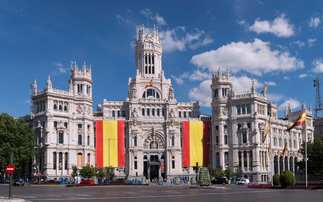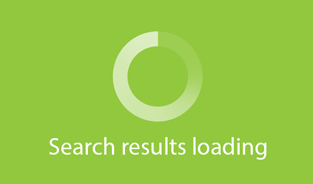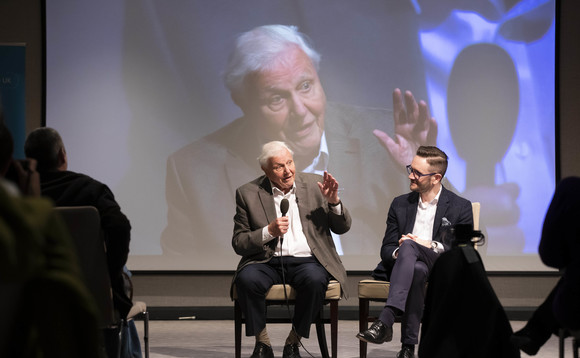
Sir David Attenborough and CCC CEO Chris Stark addressing the Climate Assembly in 2020 | Credit: Climate Assembly UK
The BBC's The People vs Climate Change documentary offers a compelling case for giving the public a voice in tackling the greatest challenge of our times
(Warning: This article contains a few minor - but not too many - spoilers)
In all walks of journalism, there is a common refrain: 'Find the human angle'.
For veterans of the climate and environmental beat, however, that refrain has historically often been a source of major frustration. Got a story about the polar ice caps melting? Scientists warning coral reefs are could be decimated within 20 years? Bee populations dwindling? 'Fine,' the fabled newspaper editor tells the reporter, 'but where's the human angle?'
Even when there is a human story - people going hungry from drought, wildfires forcing communities to flee their homes, or even the terrible toll of respiratory illnesses caused by poor air quality - the nature of science means both demonstrating and communicating how human-caused environmental problems are directly to blame can be challenging.
And so, when competing with the latest shenanigans from Westminster for a front page splash, back pages chock full of the match reports and football gossip, and media commentators attempting to stoke a culture war from the opinion pages, environmental and climate issues often scarcely get a look in. This 'climate silence' then has a worrying knock on effect, as political and business leaders struggle to prioritise an issue that they perceive to be of only limited interest to the wider public.
Thus, the key question for anyone working to combat climate and environmental crises has long been one of how to make these existential issues relevant to people's lives and secure media, political, and public engagement amid the wider din created by an increasingly divisive and angry discourse?
Thankfully, the cultural and media landscape has begun to shift in recent years, opening up space for powerful climate and environmental stories to be told. Scores of major newspapers and online outlets have expanded their climate coverage, while broadcasters have been commissioning increasingly varied programming addressing the issue. In the past couple of months alone, Sky News launched daily climate show segment, while the BBC has sent Ade Adepitan to investigate the frontline impacts of climate change, before airing a documentary series following Greta Thunberg's travels over the past year.
However, if you watch just one hour of climate-related television this year, then The People vs Climate Change released on BBC iPlayer last week is perhaps most deserving of your attention. The documentary tells the story of Climate Assembly UK, the pioneering exercise in direct democracy last year commissioned by an alliance of Parliamentary Committees and tasked with drawing up a set of recommendations from members of the public to the government for achieving net zero emissions by 2050.
Importantly, the programme makers have found not just one human story, but countless fresh angles. Indeed, an entire series could have been crafted out of following any number of the 108 individuals randomly invited from across the UK to take part in the process. The producers follow their journey across several weekends last year as they listen to experts present evidence on climate change - including Sir David Attenborough and Climate Change Committee CEO Chris Stark - and quiz them on options for driving the net zero transition before deliberating with each other to finalise their proposals to Parliament.
We meet 75-year-old Richard (no surname given), a retired engineer from Kent who is initially sceptical of the threat posed by climate change, and voices concerns over the high costs of decarbonisation which he argues could outweigh the benefits and limit personal freedom of choice. But as the documentary rolls on, and the Assembly process is forced to shift online due to the Covid-19 crisis, his outlook begins to change. Sadly, Richard is diagnosed with lung cancer, and as he ruefully recalls smoking in his youth, it forces him to re-evaluate his views on climate risks.
"60 per cent of lung cancers are caused by smoking, which leaves the question: how did the other 40 per cent get it?" he says. "The obvious answer is of course traffic fumes and industrial pollution. As people get used to the health benefits of breathing clean, fresh air, they won't want to go back to old dirty way of inhaling traffic fumes. Even if you disagree with climate change, you can't argue that clean air would be bad for the future… I am becoming more and more convinced we have to do something."
There's also 46-year-old Marc Robson, a proud ex-marine from Newcastle who works for British Gas fitting smart meters, who is from the start far more accepting that huge change is coming right across the economy, but harbours concerns about job losses in fossil fuel industries. But he becomes convinced of the potential for new jobs opportunities, and even asks his employer for training to fit household EV charge points. Robson also describes himself a big meat eater, but presented with evidence of the huge impact of the livestock production on deforestation, land use, and greenhouse gas emissions, he is among the biggest proponents of encouraging more sustainable diets.
"I will have the biggest steak I possibly can… so realistically, if meat is going to be more expensive, I will buy it once a week instead," Robson reasons with his Climate Assembly peers. "I will still have it, I'll have that once a week, and the rest of the time I'll substitute for other things - and I like meat!"
But arguably the star of the show is Sue Peachey, 56, and her infectious sense of humour. Once a keen rugby player - "guess what position I played? Hooker!" she laughs - and former winner of "the UK ladies fish filleting championship" back when she worked as a fishmonger, she now manages a set of retirement apartments in Bath. And while Peachey says she was never particularly interested in eco-friendly causes, by the end of the programme, we learn she has joined her local parish council to try and spread her newly-gained climate knowledge, and has even bought a second-hand electric car.
Peachey, Robson, and Richard - and there are many more personal stories to enjoy here - are all demonstrably transformed by their experience taking part in this unique exercise in climate education and direct democracy, and the impacts on their personal lives are profound. Watching their journeys is inspiring, and it becomes hard to fight back the tears.
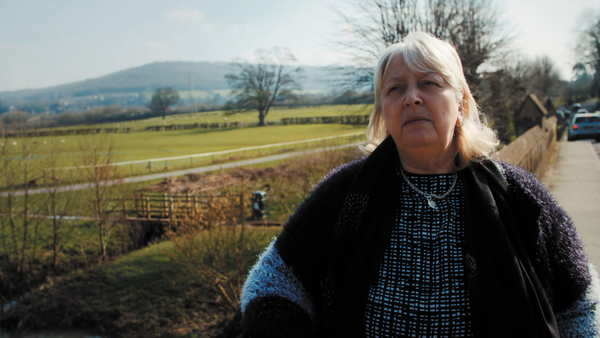
Yet it would be an injustice to frame the programme solely as a climate change documentary. It is, taken as a whole, a story of hope and humanity, of people coming together from many different walks of life bringing with them starkly differing viewpoints, yet managing to contend with a set of fiercely complex, politically fraught issues through teamwork, ambition, and optimism. The difference between Climate Assembly UK, and the way politics and decision making is undertaken in Westminster could scarcely be more stark. It begs you to imagine a new way of doing politics, one which might even serve to remove some of the polarising toxicity and vested interests which continue to dog other political issues, such as immigration or education policy.
For in The People vs Climate Change you are explicitly shown how, when provided with clear sighted, unbiased information, individuals from across the political, age, gender, and class divide are empowered to offer fair, realistic yet ambitious solutions. They are even willing to sacrifice some aspects of their own daily lives for the greater good - just as the vast, vast majority of the public did so over the past year to help combat the pandemic. And they recognise that the greater good doesn't just mean preserving the planet, but unlocking the potential for a new, far brighter, healthier, cleaner, and more equitable society, replete with fresh opportunities and benefits that the current fossil fuel-dominated economy cannot deliver. It is all too easy to feel despondent about the plight of the democracy and political standards in recent years, not to mention our sluggish progress in tackling the escalating climate crisis, and so it is chastening and even exhilarating to witness the intelligence and humanity of members of the public when they are given support, encouragement and a voice.
Still, the documentary doesn't merely inspire hope. It is also hard to escape a creeping sense of anger and frustration at the decades lost to denial, debate, obfuscation, and downright falsehoods propagated by fossil fuel companies and vested interests, and then spread and perpetuated with aplomb by large swathes of the media and political elite. The results of the Climate Assembly UK process are a damning indictment on the failures of the press, political class, and business world in communicating and contending with climate change over the past several decades, a failure for which all life on Earth is now paying a heavy price.
When thousands of Extinction Rebellion protestors shut down roads across major UK cities in 2019, one of their core demands was to "tell the truth" about climate change. It strikes that while not everyone involved in Climate Assembly UK would agree with XR's tactics, the exercise in deliberative democracy gets to the heart of what the arrested activists wanted to see, and the resulting documentary offers compelling proof of the transformative impacts of presenting the scale of the climate crisis and net zero opportunity with refreshing honesty.
The government has yet to respond to the Climate Assembly's final report - which offers a raft of radical yet entirely plausible recommendations covering travel habits, diets, energy, taxation, and much more besides - and so it remains to be seen what will become of its proposals.
But what this powerful documentary clearly demonstrates is that far too much time has been lost in the climate fight due to society's failures to properly communicate the scale of the dangers and opportunities ahead. Now, finally, the truth is getting out, and it is high time people's demand for change were listened to. There could scarcely be a more human angle than that.
The People vs Climate Change is available to watch now on BBC iPlayer.

 17 May 2021
•
8 min read
17 May 2021
•
8 min read







